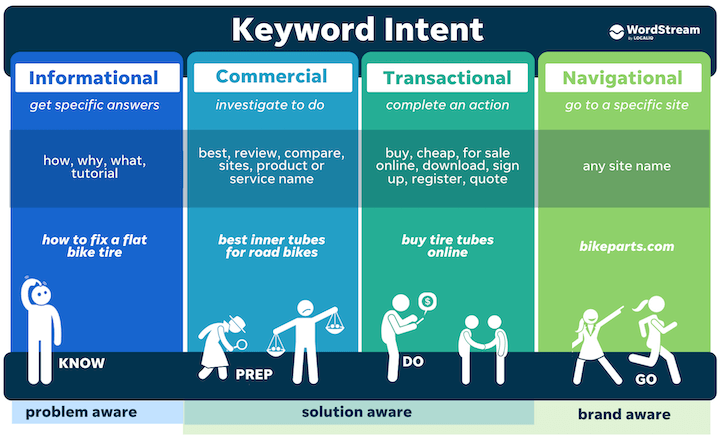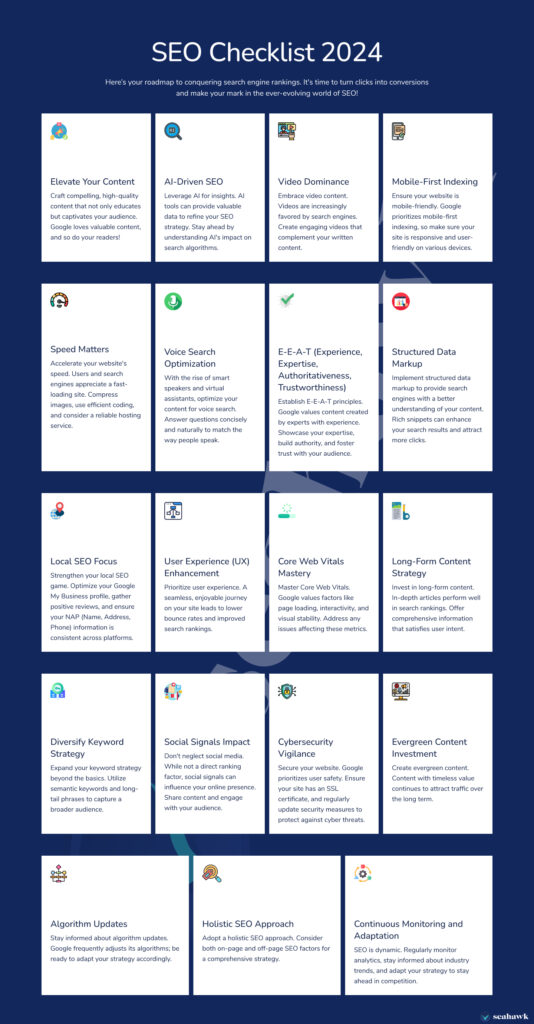Unlock the secrets to SEO success with our comprehensive guide on selecting the perfect keywords for maximum visibility and impact.

Image courtesy of via DALL-E 3
Table of Contents
In this section, we will introduce the concept of SEO and keywords. We’ll explain why they are important and how they help websites rank better in search engines. We’ll set the stage for understanding how to choose the perfect keywords.
What is SEO and Why is it Important?
SEO stands for Search Engine Optimization. It’s like a magic recipe that helps websites show up when you search for something online. Just think of it as a way to help people find what they’re looking for on the internet.
The Role of Keywords in SEO
Now, let’s talk about keywords. These are special words or phrases that tell search engines what a webpage is all about. It’s like using clues to help search engines find the right websites when you’re looking for something.
Understanding Keywords
What Are Keywords?
Keywords are the words or phrases people type into search engines when looking for information. They act as the bridge between what users are searching for and the content websites provide.
Types of Keywords
There are different types of keywords. Short-tail keywords are single words like “shoes,” while long-tail keywords are phrases or questions like “best running shoes for beginners.” Each type serves a specific purpose in helping search engines understand user intent.
Why Keywords Matter
Keywords are crucial for helping search engines like Google and Bing understand what your webpage is about. By using the right keywords effectively, you can increase the chances of your website appearing in search results when people look for information related to your content.
Finding the Right Keywords
When it comes to optimizing your website for search engines, one of the most crucial steps is finding the right keywords to target. Keywords are the words or phrases that people type into search engines when looking for information. By strategically incorporating the right keywords into your content, you can improve your website’s visibility and attract more visitors.
Brainstorming Keywords
Before you start researching specific keywords, take some time to brainstorm potential terms that people might use when searching for your website or content. Put yourself in the shoes of your target audience and think about what words or phrases they would likely use. Make a list of these keywords to use as a starting point for your research.
Using Keyword Research Tools
There are several keyword research tools available that can help you identify popular search terms related to your niche. Tools like Google Keyword Planner or Ubersuggest can provide valuable insights into the search volume and competition for specific keywords. By using these tools, you can make more informed decisions about which keywords to target.
Analyzing Search Trends
It’s essential to stay up to date on current search trends to ensure you are targeting keywords that are relevant and in demand. Analyzing search trends can give you valuable information about what people are searching for and how search behavior is evolving. By understanding these trends, you can adjust your keyword strategy to align with the interests of your target audience.
Choosing the Best Keywords for Your Content
When selecting keywords for your content, it’s crucial to ensure they are directly related to the topic at hand. Choosing relevant keywords helps search engines understand what your webpage is about and matches it with the right search queries. For example, if you are writing about healthy breakfast recipes, your keywords should reflect this topic, such as “easy breakfast ideas” or “nutritious morning meals.”

Image courtesy of digitalneighbor.com via Google Images
Keyword Competition
Another essential factor to consider when picking keywords is the level of competition. You want to choose keywords that have a balance between being popular search terms and not overly competitive. Checking the competition for a keyword can help you assess if it’s feasible to rank for it. Tools like Google Keyword Planner can provide insights into keyword competitiveness, allowing you to make informed decisions.
Keyword Search Volume
Search volume refers to how often a particular keyword is searched for on search engines. It’s crucial to select keywords with a decent search volume to ensure that there is enough interest in the topic. Choosing keywords with high search volumes increases the likelihood of driving traffic to your webpage. However, it’s also essential to consider the relevance and competition of these high-volume keywords to strike a balance.
Using Keywords Effectively
Keywords are like the secret codes that help search engines find and understand what a webpage is all about. In order to make sure your website shows up when people search for information, it’s essential to use keywords effectively. Let’s explore some simple strategies for making the most out of your keywords.
Keyword Placement
When creating content for your website, be sure to include your keywords in strategic places. This includes using them in titles, headings, and throughout the text. By placing keywords in these prominent locations, you’ll help search engines understand the main focus of your webpage.
Keyword Density
Keyword density refers to how often a keyword appears in your content compared to the total number of words. It’s important not to overuse or ‘stuff’ keywords, as this can actually harm your website’s ranking. Aim for a natural and balanced use of keywords to keep your content reader-friendly and SEO-friendly.
Creating Quality Content
While keywords are crucial for SEO, it’s equally important to create high-quality content that provides real value to your readers. Focus on addressing their needs, answering their questions, and offering helpful information. By blending keywords seamlessly into your content, you can attract both search engines and human visitors to your website.
Measuring Keyword Success
In the world of SEO, it’s not just about choosing the right keywords but also about measuring their success. By tracking how well your chosen keywords are performing, you can make informed decisions on whether to keep them or make changes. Let’s explore how you can measure the success of your keywords and make improvements when needed.

Image courtesy of rockcontent.com via Google Images
Using Analytics Tools
One of the key ways to measure keyword success is through analytics tools like Google Analytics. These tools provide valuable insights into how your website is performing, including which keywords are driving traffic to your site. By analyzing this data, you can see which keywords are attracting visitors and which ones may need adjustment.
Understanding Key Metrics
When analyzing keyword performance, it’s essential to look at key metrics like website traffic, bounce rate, and rankings. Website traffic tells you how many visitors are coming to your site, while the bounce rate indicates how many visitors leave after viewing just one page. Rankings show where your website appears in search results for specific keywords. By monitoring these metrics, you can gauge the success of your chosen keywords.
Making Improvements
If you find that certain keywords are not performing as well as you’d hoped, don’t worry! There are ways to make improvements. You can try choosing new keywords that are more relevant to your content or optimizing your existing content better. By making these adjustments based on your analytics data, you can improve your keyword success over time.
Common Mistakes and Pitfalls
In the world of SEO, there are common mistakes and pitfalls that many people fall into when choosing and using keywords. By being aware of these pitfalls, you can avoid making the same errors and improve your website’s search engine ranking. Let’s take a look at some of these common mistakes:
Keyword Stuffing
One of the most common mistakes people make is keyword stuffing, which is the practice of overloading a webpage with keywords in an attempt to manipulate search engine rankings. This can result in a poor user experience and can even lead to penalties from search engines. It’s essential to use keywords naturally and strategically within your content instead of cramming them in unnecessarily.
Ignoring Long-Tail Keywords
Another mistake is ignoring long-tail keywords. While short-tail keywords are more general and competitive, long-tail keywords are specific and often have less competition. By neglecting long-tail keywords, you could be missing out on valuable traffic and potential leads. Make sure to incorporate a mix of both short and long-tail keywords in your SEO strategy.
Not Updating Keywords
Keywords trends change over time, and what may have worked well in the past may not be as effective now. Not updating your keywords regularly can result in your content becoming outdated and losing visibility in search results. Stay on top of current trends and search patterns to ensure your keywords remain relevant and impactful.
Advanced Tips and Tricks
LSI (Latent Semantic Indexing) keywords are related terms that search engines use to understand the context of a webpage. By including LSI keywords that are relevant to your main keyword, you can improve your website’s SEO. For example, if your main keyword is “dog training,” LSI keywords could include “puppy obedience,” “canine behavior,” or “dog training tips.”

Image courtesy of seahawkmedia.com via Google Images
Optimizing for Voice Search
Voice search is becoming increasingly popular, especially with devices like smart speakers and virtual assistants. To optimize for voice search, focus on using more conversational and long-tail keywords that mirror how people speak. For instance, instead of typing “best pizza places,” a voice search may be “where can I find the best pizza near me.”
Keeping Up with Trends
Search trends can change rapidly, so it’s essential to stay up-to-date with what people are searching for. By monitoring trends and incorporating popular and emerging keywords into your content, you can adapt your SEO strategy to align with current interests. This proactive approach can help you choose better keywords over time and improve your website’s visibility in search results.
Conclusion
In this guide, we’ve covered everything you need to know about choosing the perfect keywords for SEO mastery. Let’s recap the key points we’ve discussed and offer some final tips to help you on your keyword optimization journey.
Recap of Keyword Importance
Keywords are like clues that tell search engines what your webpage is about. By choosing the right keywords, you can help your website rank higher in search results and attract more visitors. Remember to keep your keywords relevant to your content, consider competition levels, and think about how often people search for them.
Final Tips
As you continue to refine your keyword strategy, here are a few quick tips to keep in mind:
- Regularly update your keywords to stay current with search trends.
- Avoid keyword stuffing by using your keywords naturally within your content.
- Focus on creating high-quality content that provides real value to your readers.
By following these tips and understanding the importance of keywords in SEO, you’ll be well on your way to mastering the art of keyword optimization and boosting your website’s visibility online. Happy optimizing!
Want to turn these SEO insights into real results? Seorocket is an all-in-one AI SEO solution that uses the power of AI to analyze your competition and craft high-ranking content.
Seorocket offers a suite of powerful tools, including a Keyword Researcher to find the most profitable keywords, an AI Writer to generate unique and Google-friendly content, and an Automatic Publisher to schedule and publish your content directly to your website. Plus, you’ll get real-time performance tracking so you can see exactly what’s working and make adjustments as needed.
Stop just reading about SEO – take action with Seorocket and skyrocket your search rankings today. Sign up for a free trial and see the difference Seorocket can make for your website!
FAQs
Why Can’t I Use Too Many Keywords?
Using too many keywords, a practice known as keyword stuffing, can actually harm your website’s SEO instead of helping it. Search engines like Google have algorithms that can detect when a website is trying to manipulate search results by overusing keywords. This can result in penalties for your site, causing it to rank lower in search results. It’s important to use keywords strategically and naturally within your content to provide value to your readers.
How Often Should I Change My Keywords?
It’s essential to regularly review and update your keywords based on new trends in your industry and the performance of your current keywords. Search trends can change over time, so staying informed about what people are searching for can help you choose the most relevant keywords for your content. Additionally, monitoring the performance of your keywords through analytics tools can give you insights into which keywords are driving traffic to your site and which may need adjustment.
What’s the Difference Between Short-Tail and Long-Tail Keywords?
Short-tail keywords are brief and general terms that people might use when conducting a search, such as “shoes” or “dog.” Long-tail keywords, on the other hand, are more specific phrases or questions that are typically longer, like “best running shoes for women” or “what are the best dog breeds for families.” Short-tail keywords are broader and tend to have higher search volumes but also higher competition. Long-tail keywords are more targeted and specific, often attracting less traffic but with a higher chance of conversion. It’s essential to use a mix of both types of keywords in your content strategy for optimal results.







